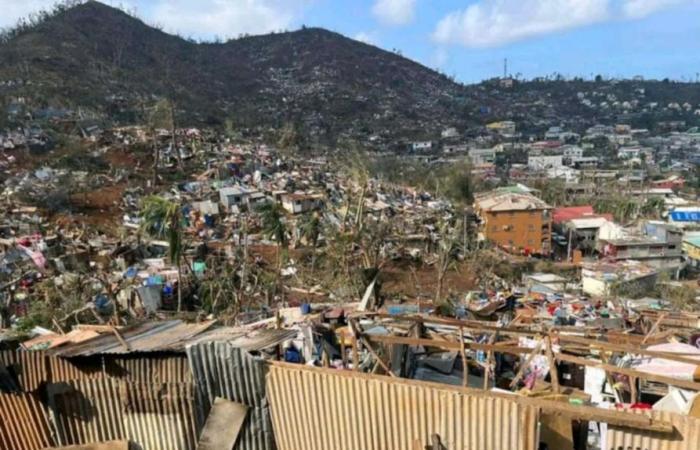
A cyclone devastated the island of Mayotte. According to the prefect of the department, there could be hundreds, even thousands of deaths, but also impassable roads and shanty towns reduced to nothing. The situation on the ground is dramatic and humanitarian aid is having difficulty arriving.
The situation is particular: Mayotte is the poorest department in France and there are very many illegal immigrants, who live in precarious housing.
When we talk about the French overseas departments, we first think of Martinique, or Guadeloupe in the Caribbean, or Réunion in the Indian Ocean, lands of tourism, immaculate beaches and dream landscapes , where the green of the sugar canes blends with the blue of the ocean. These islands are regularly confronted with cyclones, sometimes violent and destructive, but they are both well equipped and well prepared, which limits the consequences.
In Mayotte, it’s quite the opposite. 320,000 people live on 376 square kilometers, a density of 825, one of the highest in the world. The population is Muslim and mainly speaks Mahorese, a language close to Swahili. Located between Madagascar and Mozambique, this small department is 8,000 km from the mainland and 1,400 km from Reunion Island. Purchased by France in 1841 from a local sultan, it is in some ways its last African possession.
In the eyes of international law, it should no longer be French. In 1974, France held a referendum for independence in its territory of the Comoros, an archipelago of which Mayotte was a part. Three of the four islands voted 90% for independence, except Mayotte, which wanted to remain French at 68%. However, according to UN rules, a territory which gains independence cannot be divided up. We experienced this situation in the Belgian Congo with the Katangese secession. After hesitating, France used its right of veto at the UN and retained Mayotte, still claimed by the Republic of the Comoros.
77% of the population lives below the poverty line
For a long time, it was a neglected territory which only obtained the status of a department, and therefore its total integration into the Republic and Europe, in 2011. Since then, France has been working to catch up with its development delay. In Mayotte, 77% of the population is recorded below the poverty line. 30% of households do not have access to running water. Most houses are huts made of sheet metal, wood or dried bricks. Permanent constructions are extremely rare, which explains the extent of the damage. And even the buildings where the administrations are located have seen their tin roofs blown away.
And then there is informal housing: 100,000 people live in slums. Most are illegal immigrants from the Comoros or central Africa. Mayotte, a French island, is an El Dorado for its even poorer neighbors.
These precarious populations will pay a very heavy human price to the cyclone. Because contrary to what the song says, misery is no less painful in the sun.
Mayotte cyclone cyclone Chido Signed Giltay





